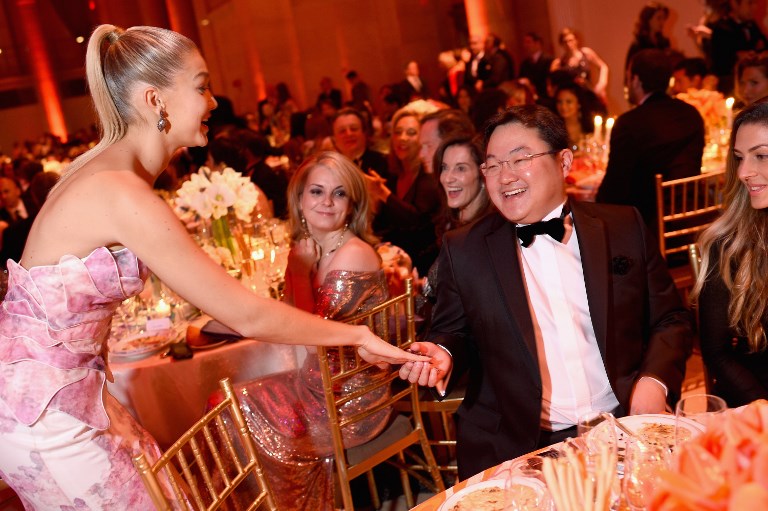Billion Dollar Whale, the new book about Malaysia’s 1MDB scandal from the Wall Street Journal’s Tom Wright and Bradley Hope, at times reads like fiction.
The scale of the thefts can be overwhelming. The brazenness jaw-dropping.
Jho Low, the book’s central figure, emerges as a sort of Paul Bunyan of profligate spending. From dropping US$85 million on parties over a period of a few months, to spending nearly US$400 million on Basquiats and Monets as friends cheered, to funding the Martin Scorsese-Leonard DiCaprio film Wolf of Wall Street.
He, of course, could have done none of it without the patronage of then-Malaysian Prime Minister Najib Razak, a man who believed his tenuous grasp on power could only be sustained via payments to his political cronies.
But the Penang native’s circle extended well beyond the prime minister and his Birkin-bag loving wife Rosmah Mansor, from Saudi royalty to the boardroom of Goldman Sachs to celebrity pals like Leonardo DiCaprio and Jamie Foxx.
Few knew where the money came from. No one much cared to ask. As long as the next Aspen ski trip, or yacht party in Monaco, or gifted piece of jewelry was on the horizon, the good ship Jho Low floated on.
Those things are — mostly — gone now. And with a new government in power at home and the US Department of Justice slowly tightening its noose, a jail cell looms as a distinct possibility.
What’s left is the scam. Arguably the largest in history. One that saw billions siphoned from Malaysian taxpayers and put directly into the pockets of the powerful. The ultimate rich get richer tale.
Tom Wright sat down last week with Coconuts Editor in Chief Chad Williams in Hong Kong to talk about the damage that’s been wrought, the people who bear responsibility, and who is likely to face justice.
Coconuts: How much of a role did the 1MDB case ultimately play in May’s stunning election upset in Malaysia?
Wright: I’d say it was crucial. Not just our reporting, but Sarawak Report, The Edge … I think that without the reporting on that scandal, the government would have stayed in power, because I think there’s a run-of-the-mill [level of] corruption in Malaysia that people are pretty inured to — and then there was this scandal.
A lot of people say “didn’t it also happen under [former and current Prime Minister Mahathir Mohamed]?” and there certainly was a lot of corruption under Mahathir. But with the amount of money there is in the global financial system now, the ease with which countries can raise capital — and in this case, they easily raised $6.5 billion very quickly with Goldman Sachs’ help — that meant the quantum of corruption was much higher, and I think that’s what eventually captured people’s imagination in Malaysia.
There’s a lot of cynical commentary out there. People saying “Well, y’know, Malaysians don’t understand 1MDB,” and that’s not true. They do understand it. They know that a ton of money was stolen, and it wasn’t just 1MDB and the intricacies of that complicated scandal, it’s a testament to a society and a system that has become incredibly corrupt over the years, enabled by Western financial institutions and expatriates.
Q: How much do you believe Najib and Rosmah were in the know? How much of the blame for this can they be apportioned?
A: When we started reporting this three years ago, it seemed very much like Jho Low was some kind of bag man for Najib. The New York Times did a story in February 2015 about Jho Low’s apartment in the Time Warner Center in New York City, and it painted him very much as a bag man, and that was sort of everyone’s understanding at the time.
But then Sarawak Report came out with a story about Jho Low taking the money into his offshore accounts, and then as we kept reporting, it became clearer that Jho Low was really the only character who had a 360 (degree) view of what was going on.
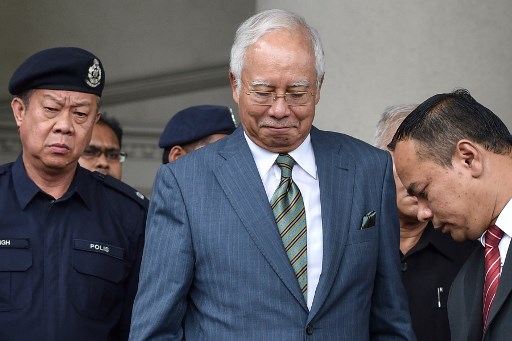
I don’t think Najib is blameless, by a long degree. I’m sure he knew it was a political slush fund, that they were getting hundreds of millions of dollars for [former ruling political party] UMNO, and that his family was getting mansions and running film companies and all this kind of thing, which he may have just seen as a benefit of being prime minister. Terribly corrupt. Not saying it’s not. But did Najib know that Jho Low had run the fund in a way that took out US$4.5 billion, US$5 billion, maybe US$6 billion dollars? I don’t think so. I think he was disengaged from the day-to-day processes in a way that Jho Low was not. Jho Low was running the show.
Q: Was there a particular moment when Jho Low’s centrality to all this suddenly came into focus for you guys?
A: I think when we got hold of WhatsApp messages between Jho Low and a number of people, including bankers at Malaysian banks, where he is clearly directing them to do this with money, do that with money, move money into the prime minister’s accounts, out of his accounts. You saw through those WhatsApp messages that he was the puppet master … telling the bank that US$680 million would be arriving from overseas.
A lot of reporting we did for this was triangulation. We would have some investigative documents from Switzerland, some from Malaysia, some from the US. We’d have some from Singapore, we’d have our own documents that we pulled from the British Virgin Islands, and we would start to see patterns where Jho Low was always in control, of everything. He was the center of the spider web.
Q: In the book, you outline three major heists, each involving figures north of a billion dollars. Which was the most audacious to you?
A: The most amazing one to me is the one in which 1MDB raised US$3 billion dollars in a bond and then asked for the proceeds to be put into a small Swiss private bank account. The fact that Goldman allowed that to happen is extremely strange to me. Because why would a sovereign wealth fund of a nation state need a Swiss private bank account? That’s incredibly audacious. The money was raised by Goldman — selling bonds for 1MDB — put into that Swiss private bank account, and then half of it was just immediately stolen.
Q: Goldman Sachs was central to much of this, not just then-SE Asia chairman Timothy Leissner — whose career trajectory seemed tied to Jho Low’s ascent — but people higher up the food chain like their president (and future Trump economic adviser) Gary Cohn. Why did Goldman, as an institution, hang in as long as they did? Was it simple greed, or is it more complex than that?
A: I think it’s greed. The context of this book and this scandal is that the financial crisis in the US had happened, banks were being reined in under all kinds of new laws… and Lloyd Blankfein, the CEO, was incredibly supportive of the push into emerging markets that Gary Cohn was leading. Doing business with these big sovereign wealth funds in Asia was a key plank of that, and I think that led Goldman to overlook massive red flags that were articulated by Goldman bankers who were working there at the time.
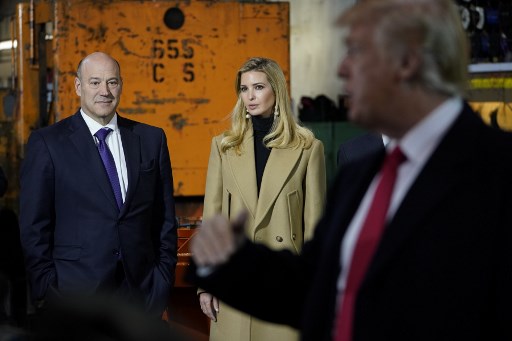
AFP PHOTO / Mandel Ngan
It’s not as if this is just us in hindsight, with 20/20 vision, saying “Oh look, this was bad.” There was David Ryan, who was president of their Asian business, saying “This fund doesn’t have any experience, we don’t understand their business model, we probably shouldn’t be doing all this business with it.” There was (former Australian PM) Malcom Turnbull’s son Alex Turnbull who said “Why are we making so much money on this business with this Malaysian fund?”
Typically, if you raise bonds for a sovereign wealth fund, you make a million dollars. Goldman made US$600 million in Malaysia on three bonds. So, these were all huge red flags, that were debated internally at Goldman, and because of the support of Gary Cohn and Lloyd Blankfein and other very senior bankers, it went ahead.
Q: Do you feel like after doing as much reporting on someone as you’ve done here that you come to understand them on some level? Jho Low feels fairly inscrutable.
A: One of the challenges we had with the book was how do you get to know a character like Jho Low. As a writer, you want the reader to feel like they know this person. We did not have full access to Jho Low, but we did a pretty good job, I feel, of showing what motivated him. One thing that was very clear, everybody you talked to would say something very anodyne about Jho Low: he’s a nice guy, very friendly, would always offer you things. Very few people could remember a meaningful conversation, a heartfelt emotion, anything like that.
As we did more and more reporting, we got a lot of access to people who were with him at the very end. I’m not a medical expert, but one person who was close to him referred to him as being “on the autism spectrum.” Things like buying multiple pairs of shoes, not being able to focus, being on multiple devices, an insane ability to remember numbers down to decimal points. But yeah, in some ways he’s inscrutable.
Q: The book is filled with absolutely mind-boggling stories of his spending. Was there a moment of excess so over the top it pulled you up short?
A: The most jaw-dropping of the spending to me was the fact that he bought the Equanimity yacht at a point when the media in Malaysia was already starting to raise questions about [financial] holes at the fund. Any sort of conservative, rational thief would be filling the hole, right? But he doesn’t fill the hole, he gets a new loan from Deutsche Bank, and he uses part of it to buy that yacht.
We had a big whiteboard when we were writing the book trying to work out “what’s Jho Low’s game plan,” but there never seemed to be much of a game plan to fill the holes or to make the business sustainable. It’s just taking every opportunity to buy the next thing. And I think that came from the impunity he felt by being close to the prime minister in that system. That speaks to all these countries that we call kleptocracies in the book. Whether it’s Russia or Brazil or Malaysia. This feeling that it’s not real money. No one’s ever going to ask for it back. It’s not like I took it from a bank and I’m being looked for. This is state money.
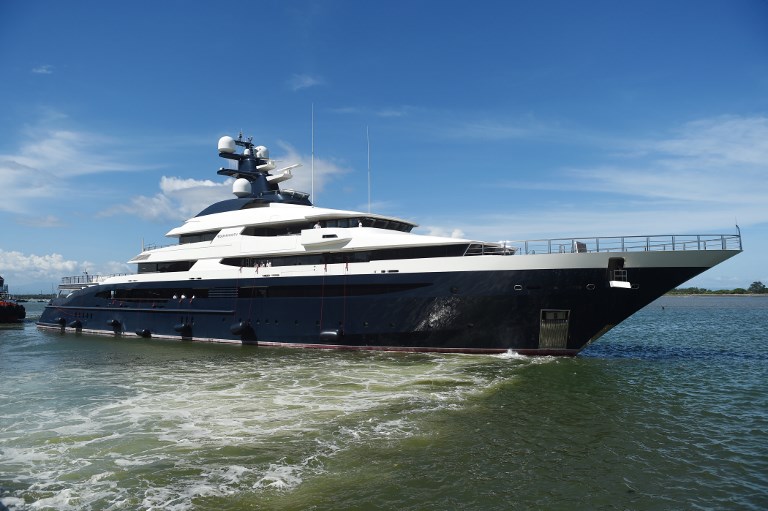
There’s a scene in the book where they talk about getting Najib to write off a half a billion or a billion dollars and it’s sort of this amorphous state money. But there’s a cost. There’s a cost to societies where this money is being stolen. Malaysia is less developed than it would be otherwise. And it’s hurt their political system. It’s hurt faith in their political system.
Q: As we speak, there are legal attempts being made to prevent your book’s sale. How can Jho Low afford expensive lawyers at this point? How much money does he still have?
A: From 2015, he’s lived mainly in Thailand and China and seems to have institutional and government support in both places. It’s for sure that he cannot use the US banking system, right? He attempted to buy a bank in Mauritius in 2017 with Tim Leissner’s help after [Leissner] had left Goldman. But he does [still] seem to have access to a lot of money. We know he was paying his legal bills in the US and London via a cut-out called Phengphian Laogumnerd, who was a Thai school friend of his, and we reported this in the Journal a couple weeks ago. The FBI is now looking at that guy, so that’s probably complicated his ability to pay for his legal services. But as far as we understand, he’s still paying his lawyers.
Q: What’s the closest you came to getting in touch with him via intermediaries? Was that ever a realistic prospect?
A: I can’t really talk about it.
Q: Presuming you never got to Jho Low himself, is there someone else you really wish you could have interviewed?
A: We were always hoping that we would be able to talk to someone from his inner circle, and what’s been extraordinary is that none of the people who were with him from Day 1 — in the book, there’s a coterie of characters that help him carry things out, there’s a guy called Fat Eric, there’s Casey Tang (1MDB executive director], there’s Jasmine Loo [legal counsel at 1MDB]. These were the people who either ran 1MDB or were his consiglieres, his inner circle. None of those people peeled away in the way you would have expect them to do. There’s some kind of personal loyalty to him, or payments that these guys have gotten. I mean, Jho Low changed a lot of people’s lives by bumping up against them.
Q: Joey McFarland [producer of Wolf of Wall Street and Daddy’s Home] springs to mind in that regard.
A: Joey McFarland also did not talk to us for the book. He turned from a guy running a gyro restaurant to being a top-flight Hollywood producer. Those folks would have been interesting because they would have known the daily routines of the inner circle.
Q: The book has a number of high-profile celebrities who are recurring characters. With Leonardo DiCaprio, you’ve got a reasonable motivation, he’s seeking financial backing for The Wolf of Wall Street. How do you explain Jamie Foxx and some of these other hangers-on?
A: One of the things that I think you learn from this book is “what is really wealthy?” If you’re Miranda Kerr and you’re the second-best paid supermodel in the world after Giselle Bundchen, why do you need to date Jho Low? And the way that it’s been explained to us by people in that world is that $7 million a year [Kerr’s estimated 2013 salary] is not that much money if you’re putting on parties with Kanye West singing on boats in St. Tropez in July and August. You need a billionaire with deep pockets to make that kind of thing happen. Jamie Foxx, I think …
Q: You refer to [Foxx] as a “good friend” of Jho Low at one point in the book.
A: Well, he was getting paid to emcee events, and partying. I don’t pretend to know exactly what motivated Jamie Foxx, but I’m imagining it was partly just enjoying the party scene that was going on. The prologue of our book starts with Jho Low’s birthday party in 2012, and Robin Leach, who just passed away, a veteran of the nightlife world, said it was probably the most expensive private party ever thrown. Jamie Foxx, I assume, likes parties. Also, these guys all got paid. There’s a character called Swizz Beats, who’s Alicia Keys’ husband, who even earlier this year, a long time after Jho Low had been written about in international media as a fraudster, was still hanging out with him. And they were getting paid, for sure. Someone we know from Jho Low’s birthday in 2012 [said] Swizz Beats got paid $800,000 [to perform].
Q: I’m not sure that’s a friend.
A: Well … did you see the photos? There’s a photo [in the book] of Swizz Beats hanging out with Jho Low. They seem like they’re friends, but yeah, it does seem very transactional to me. And I think that’s one of the things the book portrays, how if you’ve got enough money, you can buy your way into Hollywood.
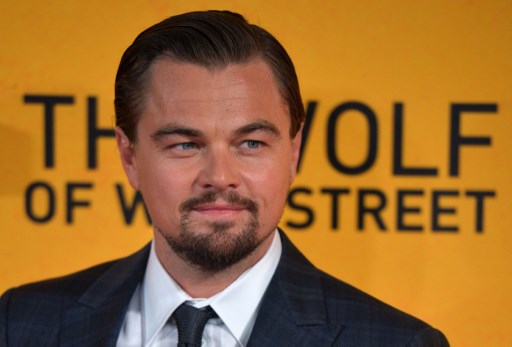
We didn’t want [the book] to be pointlessly titillating, the aim was to show something about both the financial system and the entertainment world in America today. And it’s clear that if you have enough money and you go to a bank, they don’t do the proper compliance checks that they should. If you’ve got enough money and you go to a nightclub and spend enough money in there, you can do whatever you like. If you want to put a lot of money into Hollywood, no one’s going to do due diligence on you. If you want to funnel money through a white shoe law firm in New York like Shearman & Sterling, go ahead — if it’s billions or hundreds of millions.
Q: That’s another big takeaway from the book, that sense of what a truly insular club the 1% comprise.
A: We even call it the 0.1 percent club in the book. For us, for the hoi polloi, Hollywood stars are rich. But they’re not. Not really. Not compared to Jho Low… We tried to approach the book without looking at (the spending) from a moralistic viewpoint. So, if you make your billions in a bona fide way and you want to spend it on a super yacht, we’re not trying to suggest you can’t do that. But what’s amazing, and I think this is kind of a factual assertion, is that you can never have enough money. I mean, if you’re Tim Leissner — and Tim Leissner made over $10 million in 2012, the year Goldman did all the bonds — to you or I, we wouldn’t know how to spend all that money, but if you are hanging with Jho Low, or you’re hanging with billionaires, or trying to run a yacht — you need more money.
Q: Tell me about the night you were warned you might be arrested in Malaysia. What was going through your mind?
A: It was our deep throat source [identified only as MS in the book] that told [co-author Bradley Hope] that I was at risk of being arrested. It was couched as a warning, but it was clearly a threat. “They know he’s in the Shangri-La hotel and he probably shouldn’t be there if he doesn’t want to get arrested.” And this was November of 2015, shortly after Najib had crushed any opposition at home — changed his attorney general, got rid of his cabinet members, shuttered a newspaper for a while. It was all part of an attempt to try to sort of put a lid on things. And it was being run by these people around Najib, who were advising him to stiffen his mettle, because he was not until that point known as a very strong politician.
I was a little bit worried, but I had worked as the Pakistan correspondent for the Wall Street Journal, so I think I always found that a little bit more worrisome than anything that would happen in Malaysia.
Q: In the book, you talk specifically about avoiding the trap of simply blaming this all on developing world corruption, about the need to hold Western financial institutions accountable. What should Western governments be doing to prevent this that they aren’t?
A: I think the key is going to be what happens in this case. If the banks involved, and the lawyers involved, the auditors involved … if everyone gets off scot-free, then this will continue to happen. if Goldman gets slapped with a deferred prosecution agreement and a fine and no admission of guilt — which is what happened during the (2008) sub-prime financial crisis — then nobody learns any lessons, because it’s just an operational cost to these banks.
Q: There’s a line in the book: “In America, in the twenty-first century, Wall Street bankers did not end up in prison.” Should they?
A: Yes. I’m not commenting on the individual cases here ahead of what the Department of Justice will do, but I think for sure, that if no one goes to jail in the 1MDB scandal outside Malaysia, then there will be no fear of going into emerging markets and acting in a similar way in the future.
And I’d also say it’s not just the financial world, it’s also Hollywood, real estate, law firms, art auction houses, all of these powerful institutions in America have to look very carefully at where their money is coming from. It’s not good enough to say “oh, it’s an Asian prince, or a Saudi sheik. We don’t have to know about their money.” This orientalism. You look them up on Google. You do some due diligence.
Q: The latest reports have Jho Low hiding out somewhere in China. Why should China provide him with cover, and how long should we expect this sort of largesse on their part?
A: [One thing] I’ve learned [is] that Hong Kong’s rule of law is not very strong, at all. And that China has quite a strong control over the territory. That’s the kind of thing that people say, but I know it from experience.
Q: Why do you say that?
A: Because Hong Kong police have failed to take action against a fugitive from justice who has been sought by Singapore for two years under an international red notice by Interpol. Did not do anything. On questioning by us in recent weeks, they did not take any action.
Jho Low was living here, we know that for sure from sources, at a time he was being sought by authorities in other countries. Why is that so? We believe he played a role in helping to negotiate a bunch of infrastructure deals in Malaysia involving Chinese state-owned companies that the new Malaysian government believes were padded and the excess profits taken — some of it to pay off 1MDB debts and some of it stolen.
So, my summation would be: Jho Low knows a lot about who was involved with what in those deals and therefore it causes a little bit of a headache for the Chinese communist party. But we understand that there are talks going on to get him sent back [to Malaysia].
This interview has been edited for length and clarity.
Billion Dollar Whale: The Man Who Fooled Wall Street, Hollywood and the World is already on sale in Malaysia and is available worldwide tomorrow.
